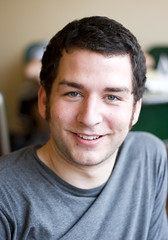Check this out.
Over on Salon.Com, they have an exclusive article by Karen Kwiatkowsky, a retired Pentagon official who worked with the Near East South Asia devision and shows us an insider's look at what's really going on with the Office of Special Plans.
Here's a good example of some of the juicy bits she's got in the article:
"War is generally crafted and pursued for political reasons, but the reasons given to the Congress and to the American people for this one were inaccurate and so misleading as to be false. Moreover, they were false by design. Certainly, the neoconservatives never bothered to sell the rest of the country on the real reasons for occupation of Iraq -- more bases from which to flex U.S. muscle with Syria and Iran, and better positioning for the inevitable fall of the regional ruling sheikdoms. Maintaining OPEC on a dollar track and not a euro and fulfilling a half-baked imperial vision also played a role. These more accurate reasons for invading and occupying could have been argued on their merits -- an angry and aggressive U.S. population might indeed have supported the war and occupation for those reasons. But Americans didn't get the chance for an honest debate.
President Bush has now appointed a commission to look at American intelligence capabilities and will report after the election. It will "examine intelligence on weapons of mass destruction and related 21st century threats ... [and] compare what the Iraq Survey Group learns with the information we had prior..." The commission, aside from being modeled on failed rubber stamp commissions of the past and consisting entirely of those selected by the executive branch, specifically excludes an examination of the role of the Office of Special Plans and other executive advisory bodies. If the president or vice president were seriously interested in "getting the truth," they might consider asking for evidence on how intelligence was politicized, misused and manipulated, and whether information from the intelligence community was distorted in order to sway Congress and public opinion in a narrowly conceived neoconservative push for war. Bush says he wants the truth, but it is clear he is no more interested in it today than he was two years ago."
-- Go read it, it's full of juicy tidbits. I'll be honest, it doesn't tell you anything you didn't probably already suspect, but it is a named source, on the record, explaining their first-hand experience with forging and politicizing evidence prior to the war in Iraq. The article is long, well-linked and certanly well researched.


0 Comments:
Post a Comment
<< Home